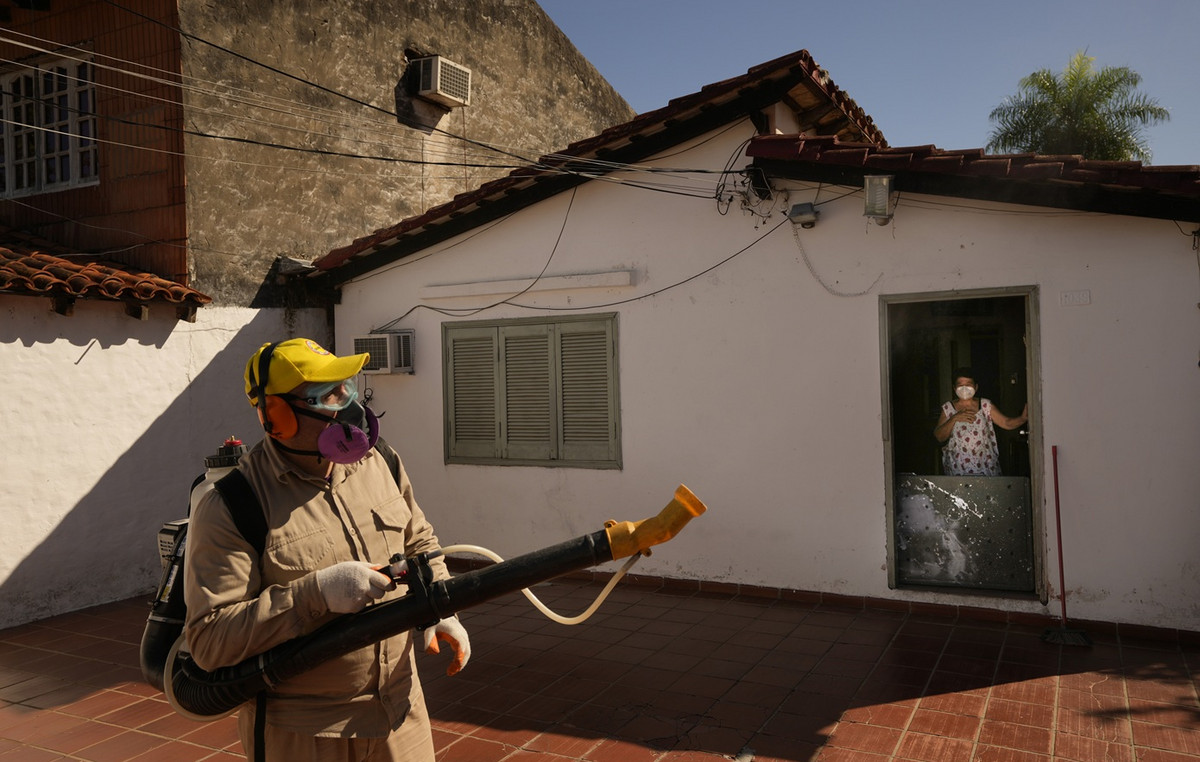You Portuguese will ballot box This Sunday (18), for your third election general in just over three years.
Check out some of the main questions that dominate the vote:
Why the early elections?
THE prime minister Luís Montenegro was unable to achieve Parliament’s confidence in March, in a vote he himself proposed, after opposition questioning his integrity regarding negotiations with his family’s data protection consulting firm.
This led President Marcelo Rebelo de Sousa to Dissolve Parliament and to summon the elections .
Montenegro, who leads the democratic alliance (Ad ), of center-right, denied any irregularity. Opinion polls show that their reputation remains practically intact to what the public considers an ethical issue without criminal implications.
What opinion polls show
THE Ad He came to power after winning an election last year, with about 29% of the votes and 80 seats in a 230 -seat parliament. Opinion polls show that the party is again in the leadership before the elections, but still probably far away of one majority effective.
The aggregator of research Radio Renaissance puts the Ad with just over 32% 10 percentage points below the support that would give him a full majority of 116 chairs.
You Socialist of the center left are in second place in research with 27% just below the 28% they had a year ago, followed by the Ultracereita Anti-Imigration Party He arrives with 17% And with little difference from the previous election, when he quadrupled his parliamentary representation.
THE Liberal initiative right -wing, fourth, is seen by many experts as an allied potential coalition for the Ad but it is around 6% In research, which would still leave the two parties short of the majority.
THE public frustration has increased by the repeated elections and the instability of governance, and analysts expect the electoral abstention Increase after a record of 6.47 million people voted by 2024.

Immigration is the main question
About 1.5 million foreigners reside in Portugal, almost triple the number a decade ago, representing about 14% of the total population. Under the socialist regime, between 2015 and 2023, Portugal had one of the regimes migratory more open from Europe.
The increase in arrivals, especially in Asia, recently generated a feeling anti-immigration and propelled the He arrives In last year’s elections, although the ultra -right party has stagnated in opinion polls ever since.
The government of Montenegro reinforced the immigration rules echoing the efforts of other parts of Europe to combat the ultra -right, but the country remains relatively welcoming, especially to migrants of Brazil and African Language Countries Portuguese .
You migrants often face precarious jobs and lower salaries, but economists claim that they contribute significantly to the growth economic and social security.
Political stability
Opinion surveys show that the voters Portuguese They are increasingly frustrated with the political elites and an electoral standard that prolongs a cycle of Short Governments and legislative impasse.
Greater political instability can cause delays in structural renovations and large projects, including lithium mining in the North, and potentially compromise the efficient application of European Union (EU) funds and the privatization of TAP airline, a long postponement.

Salaries and taxes
The average salary in Portugal, of just under 2,000 euros (R $ 12,730) per month, is well below the EU average of 3,155 euros and is the lowest in Western Europe, forcing many Portuguese to look for jobs with better remuneration abroad.
The Montenegro government has taken several measures to try to relieve talent escape, offering tax cuts and salary benefits to young people and companies that hire them.
With the cost of living still increasing after several years of inflation Above average, voters want to see more concrete measures to increase wages, reduce taxes, improve job security, and strengthen the social welfare system.
Economics, trade
Portugal exceeded most EU states in economic growth, registering budgetary surpluses and reducing debt under center-left and center-right governments.
The economy grew by 1.9% last year and the expectation is for growth of over 2% this year. But the GDP unexpectedly shrunk 0.5% in the quarterly comparison between January and March, with the fall of net exports, indicating the country’s vulnerability to global commercial tensions.
Recent surpluses took public debt less than 100% of GDP, receiving praise from Brussels and Investors. The forecast is a surplus from 0.3% to 2025, below 0.7% last year.
Real estate crisis
The housing has become a central electoral issue that a new government will have to address.
Tourism boom helped the economy, but also fueled a real estate crisis, expelling residents of urban centers and even the nearest suburbs. Property prices in Portugal rose 9% last year, around the EU average.
Health
The overloaded public health system is another concern, with decline services, staff scarcity and long waiting times. Medical professionals went on strike for low wages and precarious conditions, while patients face delays of months to receive treatment.
This content was originally published in election in Portugal: immigration is the main theme; Understand what is at stake on the CNN Brazil website.
Source: CNN Brasil
Bruce Belcher is a seasoned author with over 5 years of experience in world news. He writes for online news websites and provides in-depth analysis on the world stock market. Bruce is known for his insightful perspectives and commitment to keeping the public informed.







